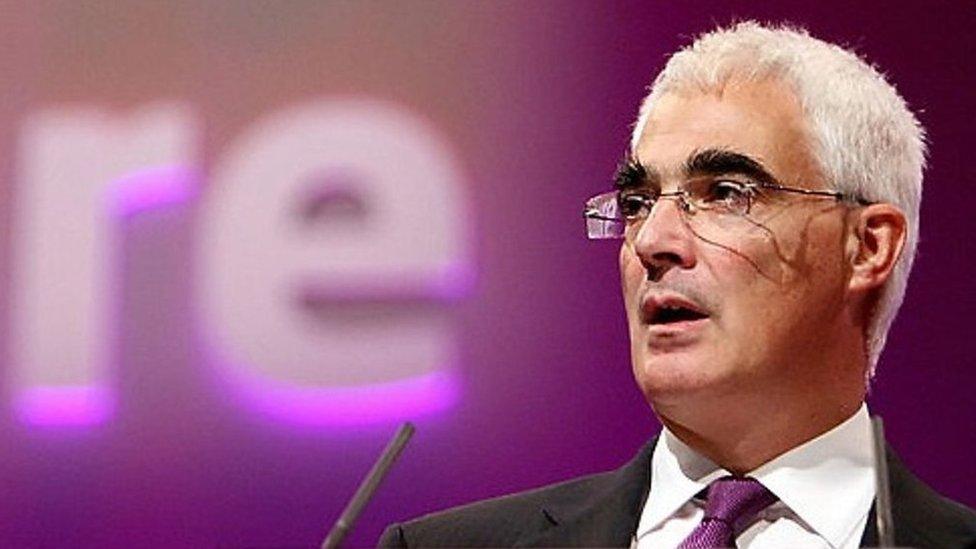Lord Darling backs Holyrood immigration powers
- Published

The man who led the "No" campaign in the Scottish independence referendum has called for Holyrood to have more control over immigration policy.
Lord Darling said a shortage of immigrants was a major concern for Scotland in the Brexit process.
He said Scotland's particular demographic challenges may require a different approach.
The former Labour Chancellor was being questioned at a hearing of the House of Lords European committee
Lord Darling, who was chairman of the Better Together campaign, said he believes the constitutional question has been settled by the Scottish independence referendum in 2014.
However, he highlighted two issues arising from Brexit that are of distinct concern for Scotland. One was the effect on financial sector jobs if the Brexit deal affects the openness of the European market.
Lord Darling is now on the board of Morgan Grenfell and is chairman of the Standard Life Foundation.
He said the immigration issue has already been tackled by two committees in the House of Lords, saying: "Scotland's population is changing. The demographic change is going the wrong way.
"I'm not sure there's an easy answer. It's fraught with difficulty. As long as you don't have a border, and if you allow someone to come and work in Edinburgh or Glasgow, how can you be sure that's where they continue to work?
"But other countries seem to have a go at it. I do think it's something that needs to be looked at.
"I wouldn't under-estimate the practical problems of doing it, and also that the whole issue of immigration is as difficult and charged an issue north of the border as it is south."
Lord Darling believes a Brexit deal will be done - but it could take years
Questioned about the impact on the finance sector, he said British-based firms will wish to apply for licences to operate in other EU countries, in case they are barred from "passporting" across the EU from their British bases.
He said that can take six months to a year, so firms will soon start the application process, and it will be hard to start once it stops.
His concern about the finance and manufacturing sector is that, once business managers ask if they need to have a British base, they will choose to place new investments in other countries.
In other exchanges with fellow peers, Lord Darling said he expects there will be a deal between the UK and other EU members, but that it is likely to take four to five years.
He said the biggest obstacle to a deal is the lack of clarity about what the UK government is trying to achieve.
"We need to decide where we're going, that we're not going to get everything that we want, that it's not going to happen in 18 months. Referendums are really really divisive, and I hope the government can sort this out before divisions become too deep seated.
"The longer you have uncertainty and manifest disagreement in the government and wider, the more it seeps into public consciousness."
He said it also affects Britain's overseas reputation. After the Scottish referendum, Lord Darling found many foreigners were more aware of internal British politics than British people are of foreign nations.
He added that the transition or implementation phase will have to become clearer soon.
"Time is rapidly running out. You have to have the Article 50 agreement ratified, which means you have 12 months (left), and there's an awful lot to be discussed.
"The urgent thing is for us as a country, and the government to form a view as to where we want to end up in all this. And if we're going to have a transitional period, we'd better get on with it quickly, because the value of a transitional agreement degrades every single day. The time factor has become pressing."